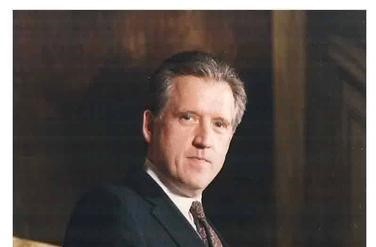This article first appeared in Broad + Liberty
On Jan. 3, 2023, the Pennsylvania House of Representatives will meet and determine if our state will show the potential for effective governance or vindicate the current cynicism about democracy.
The arithmetic is simple but the human dimension of the problem is much more difficult.
Legislative bodies are governed by majorities. They are organized by the majority party, and passing legislation requires a majority of those elected.
The voters have selected 101 Republican House members and 102 Democrats. However, one of the Democrats — Tony DeLuca — died before the election, reducing their numbers to 101. Two more Democrats — Austin Davis and Summer Lee — were also elected to other offices (Lt. Governor and U.S. Congress). Those two will likely be persuaded to take office, however temporarily, in the Pennsylvania House, creating a 101-101 tie.
The options before the Pennsylvania House of Representatives then become:
1. One or more switchovers.
A dissident member of either party might be induced to switch and thereby create a durable majority for the receiving caucus. This would enable the organization of the House and the election of the Speaker but would be a cumbersome structure and may be disrupted by the results of the special election to fill the vacant seats.
2. Stalemate
Assuming both caucuses remain cohesive and insist on their positions, the House cannot organize, adopt rules, or elect a Speaker. However, the Democratic membership will drop to 99 when Davis and Lee resign to take up their new seats. (Congress convenes on Jan. 3 and the Lieutenant Governor will be sworn in on Jan. 17.) This will result in a total membership of 200, and a constitutional majority now would be 101. The Republicans would then elect the Speaker and proceed.
Among the first orders of business would be the setting of the date for the special elections to fill the vacancies. Since the Democrats are strongly favored in those seats, they would be in position to reorganize the House and elect their candidate for Speaker when and if they are successful. It is therefore likely that the Republican Speaker would set the date as far as possible into the future, which would be at the primary election in May.
3. Chaos
The frustration and tension that would result from the failure to govern would likely produce behavior that would increase unpredictability. The boundless ingenuity of lawyers would be brought into play and every nuance and obscure rule and practice would be exploited. For example, a Speaker can not be removed, except by a Majority of the Elected Members, but a Speaker can be elected by a Majority of those Members present and voting.
This raises the possibility that during the stalemate a Speaker could be elected by whoever happened to be in the House Chamber.
4. Power sharing
The bottom line is that the state Constitution requires that legislation be passed by a majority of those elected, and the reality is that a stable majority will not be available for either party during this term.
Power sharing arrangements can be structural, such as Committee membership, and authority, a shared Speakership, rules governing the legislative calendar and debate, etc. They could also be informal rules of engagement enabling housekeeping, determining what issues will be considered and a mechanism for resolution of conflicts and misunderstandings.
Any such arrangements require the forbearance of the members of each caucus and significant deference to their respective leaderships.
The support of the incoming Governor, Josh Shapiro, for an arrangement would be very helpful. He is politically skilled and coincidentally the architect of such an arrangement when he was a House member in 2007–2008.
If the special elections confirm a durable majority, the successful implementation of power sharing could potentially yield a positive experience across party lines that would create better communication going forward.
The reality in Harrisburg is divided government: divided by party, divided by ideology and divided by those who would substitute passion for principle.
Someday, reasoned debate in a transparent forum, by those of good will, observed and instructed by an informed electorate, will change that. Meanwhile, I suggest that the business of government needs to be pragmatically done.
It will not be perfectly done. It never has been. But it can be done and has never been more important.


